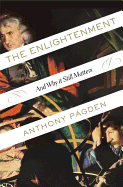 Ari Shavit (Get this book)
Ari Shavit (Get this book) Israel has betrayed its best, truest self, argues Haaretz journalist and peace activist Shavit in this wrenching dissection of the nation's past and present. Born in 1957, the author is the descendant of intellectuals and idealists who brought Zionism to the shores of Palestine at the turn of the 20th century. Step by step, the author follows the Zionist dream as it played out in Israel. Kibbutz socialism initially had great success as the pioneer generation rebelled against the "daunting Jewish past of persecution and wandering." His effective mix of autobiographical reflections and interviews with key participants peters out toward the end into journalistic snippets, but that hardly muffles the overall impact of his anguished cri de coeur. Thoughtful, sobering reflections on a seemingly intractable conflict.--Kirkus







































